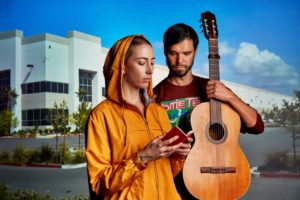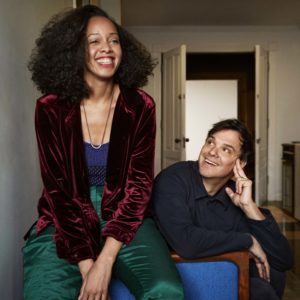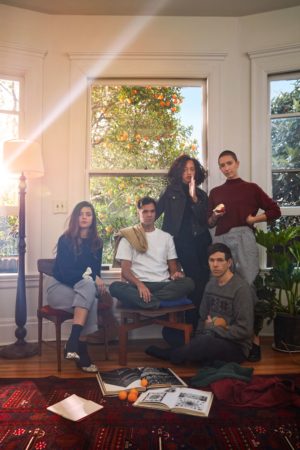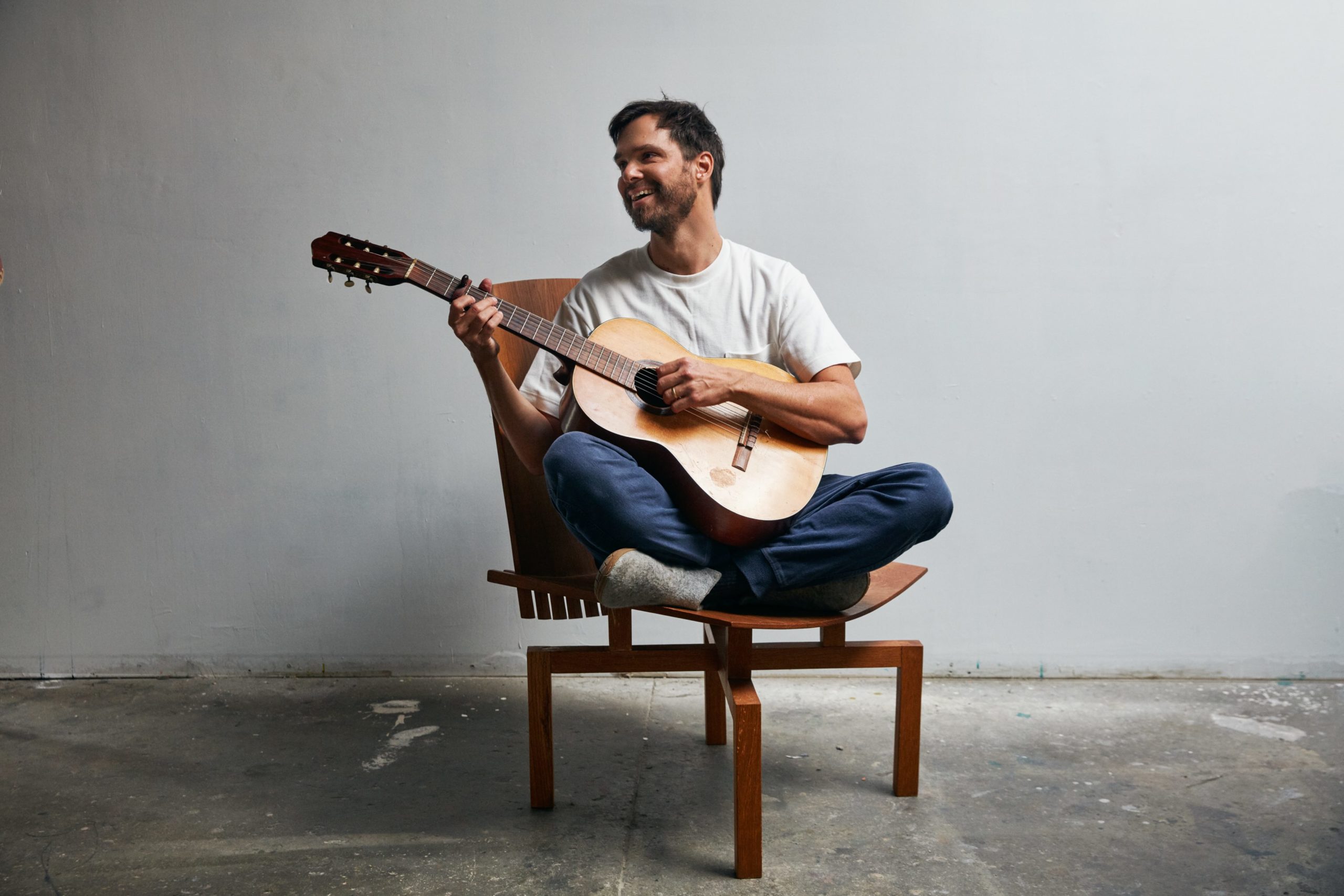It’s a strange coincidence that Dirty Projectors’ founder and sole core member David Longstreth would switch up his approach in 2020. As a musician and songwriter whose defining modus operandi for the last eighteen years has been that of multi-personnel collaboration (save for 2017’s self-titled, which is the project’s only solo album to date), he found himself increasingly drawn toward changing the band’s sound to one that emphasizes its individual members, rather than the sum of its parts, following the release of 2018’s Lamp Lit Prose.
This question of whether “[everyone] could be the lead singer of this band” eventually fermented into the project’s latest release, 5EPs, wherein Longstreth sat for individual sessions with each of the group’s singing members, working both musically and lyrically to create four-track extended plays that highlight each performer’s abilities. The end result is a varied final effort, one that represents the project’s most diverse offering to date. From the stripped-down acoustics of Maia Friedman’s Windows Open, to the cool electro of Felicia Douglass’ Flight Tower, to the glitching orchestral fanfare of Kristin Slipp’s Earth Crisis, the landscape of 5EPs feels like a decidedly focused experiment in honing the outfit’s scattered, genre-averse sound into concise suites.
Moreover, 5EPs represents, in Longstreth’s view, a novel approach toward songwriting, one that involves “trusting where the words fall” and enabling lyrical improvisation that’s porous and non-meticulous—a decisive break from his methods on the last two records. We caught up with Longstreth to discuss the process behind the release, his love of bossa nova, and the ever-fluctuating definition of what Dirty Projectors really is.
Could you walk us through the conception of this EP cycle and what motivated you to approach this project in a different way?
When we were putting together the tour for Lamp Lit Prose back in 2018, it was an exciting moment because it was the first tour with Maia, Felicia, and Kristin. I think we were rehearsing harmonies or something and for the first time I found myself thinking, “It would be so cool if just one of us was singing at a time, if we could all be the lead singer of this band.” And that idea kind of stuck with me.
It struck me as a weird coincidence that this project would come out this year, because each of the four EPs thus far have their own separate energies, yet there’s a sense of interconnectedness within the project as a whole.
Yeah, I have felt that way as well. Like a couple people looking at the album art for these EPs have noted how “2020” it seems, with each person in their own slide—we’re all together, but apart. It’s like a socially distant band photo. For me, with 5EPs, it is a group portrait, but it’s a group portrait in mosaic. And it’s really the fifth EP, Ring Road, where the whole band comes together in a single frame. But in the end, it’s really coincidence or something—obviously the virus and all the ensuing fallout has been terrible. It’s a strange alignment. For all of us in the band, the EPs have been a bit of a bright spot, something to look forward to.

Language is a recurring motif throughout these five EPs—the track “Holy Mackerel” stems from the first words your wife said as a child, the title of Flight Tower is the product of random word association. How did this concept of spontaneous language play into the songwriting on 5EPs?
This project, in a lot of ways, felt like opening a window in a process that had become sort of refined for me. On the prior two records I was thinking of lyrics in a very conscious way—I was trying to control all of the meaning. And I like some of those words, for sure, but it’s a different energy on 5EPs—it’s way more about trusting where the words fall, both in terms of how it first occurs to you to write something, and also responding to the vowel sounds of vocalese melodies, and trying to tease out whatever crazy image or syntax is in that nonsense language, and trusting that there’s meaning there. I find that there often is.
And another part of that is the fact that these words were written collaboratively—and I’ve never done that before. I’ve found that when no one person is there to say, “Well this is what [these lyrics] are about,” then it’s very open, it’s very porous. The language has a life of its own, and in some cases I don’t know what some of these songs are about. They move me, they suggest things to me, but it’s freer.
“I’ve found that when no one person is there to say, ‘Well this is what these lyrics are about,’ then it’s very open, it’s very porous. The language has a life of its own, and in some cases I don’t know what some of these songs are about.”
Did this process come with a degree of doubt, where you felt you had to train yourself to trust those first instincts?
I guess when it comes to trusting language, or trusting instincts, it’s just a question of being more decisive about why you love it—and maybe not asking whether a turn of phrase, or a Rhodes piano part, or a drum pattern succeeds at every sort of iterative level. I’m not trying to map the language, I’m letting you, the listener, map it. I’m letting the listener have their own experience with it. And that allows me to have my own experience in making it. I’m not sure that’s a strategy for combating the doubt, but it helps in stripping away mental processes in the act of creating.
You take the lead on the Super João EP, which is inspired by bossa nova and specifically the music of João Gilberto. What was your motivation to write this suite of songs in this style?
I love the way João Gilberto plays the guitar, I love his voicings—specifically the way he stacks chords, the way he moves between chords, it’s very melodic. And as a singer, his melodies are crazy—his leaps and chromatic passages, he makes it feel so effortless. For Super João, I was thinking about this idea of endless melody—just melodies that go on forever. And it just felt so good to work in that mode. With music on Super João, and all over these EPs, really, I was just letting myself make music without forcing it in one direction or another, but by just letting it be, and seeing how long these melodies could be while still holding together.

The production of this effort came about from a number of independent sessions between you and Douglass, Friedman, and Slipp. Were there any moments that stood out as particularly memorable during the recording process?
They were each memorable, really—with Felicia, what was crazy was how quickly we wrote together. We would listen to a passage maybe three or four times, and several times we would come up with a number of the same exact words, and a lot of overlapping imagery in terms of water and rivers, which felt magical. With Kristin, we got super philosophical—her EP had more of a conceptual dimension. I knew it had this ecological overlay, and so it was fun to talk philosophically about that as we were writing these words.
“I was just letting myself make music without forcing it in one direction or another, but by just letting it be, and seeing how long these melodies could be while still holding together.”
But it was a funny experience a lot of the time too. In the track “Eyes on the Road,” there’s this rising passage that’s in parallel thirds, it’s this big, kind of yawning melody. And Kristin was cracking up—she said, “I’m just seeing this mental image of being on a gondola in Venice as I’m singing.” And it seemed so apt, for this bel canto kind of thing.
Do you ever struggle with what listeners see the band as, and your own vision for the project?
I think it’s sort of baked into the band name—everyone says band names are stupid, you make them as a joke or as a lark, when the whole idea of the band is just that, an idea. And then you have to live with it. This idea of Dirty Projectors, it’s just like, what even is it? And I have an idea of what it is, and someone else has an idea of what it is. And to me, it’s just the music I make, collaboratively and by myself. And there’s always a spectrum—some albums present as more kind of soloistic, and the others present as this band avatar. I think regardless of what that image is—and I think this is where it relates to the idea of the band name, whichever way it faces—music is irreducibly collaborative. And it’s one of the things I love about it. This is a moment where I wish we were playing shows. It’ll be powerful to be on stage with everyone up there. FL










